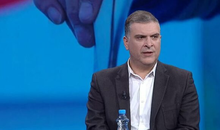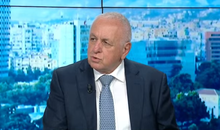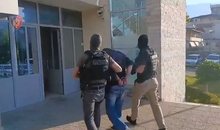
 Flash News
Flash News
Ersekë/ Elderly man struck by lightning, dies on the spot
KAS vendos hapjen e 229 kutive të materialeve zgjedhore të Qarkut Vlorë
Fraud and money laundering, 9 thousand square meters of land seized in Fushe Preza
Constitutional Court reviews TikTok shutdown decision
Murder of Ermir Dedja, two people arrested, smuggled the vehicle used by the perpetrators
Albanian municipalities donate Albanian language literature to ethnic Albanians in Serbia
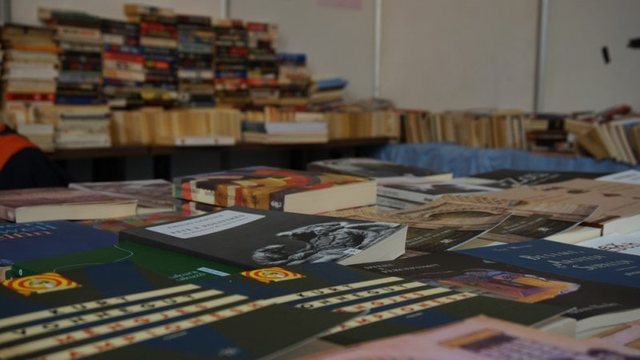
About 200 books in the Albanian language have been collected by local residents in the town of Pogradec in Albania, to be sent to ethnic Albanians living in Serbia, who have expressed difficulties in accessing such literature in local libraries and schools, EURACTIV reports .
During his recent visit to Pogradec, Nagip Arifi, mayor of Bujanovic, a region with an ethnic Albanian majority, explained that his constituents "suffered" from a lack of access to Albanian literature. In response, the deputy mayor of the Municipality of Pogradec, Entela Gusho announced that more than 200 books have been collected and will be distributed.
"This idea started at the end of March, when in Pogradec were all the mayors of the municipalities of Macedonia, Kosovo, but also of the Serbian Albanian municipalities. The mayor of the municipality of Bujanovci expressed with pain that the library of this city lacks Albanian books and authors and the residents of this municipality are looking for these books ," said Gusho.
Many of the donated books came from young people and students.
"I heard about the call made by the municipality of Pogradec for the donation of books for the library of Bujanovac in the valley of Preševo, my relationship with the book is sacred and I am inspired to participate in this initiative... I think that the book is the strongest weapon for connected people, especially our compatriots" , said student Fjona Danglili to Euronews.
The other donor, Loridela Beqari, said: "I decided to donate a book and many others that I have at home because I became part of this initiative to enrich the library of Bujanoci. The passion I have for books and knowing that others do not have the same opportunity as we do to read Albanian, I will donate a part of my books."
In 2020, the Albanian government donated Albanian language books to students in the same region to help them with their studies. About 4,052 students benefited from the program, which cost about €140,000.
Ethnic Albanians living in Serbia's Preševo Valley not only struggle to access Albanian-language books in local libraries and schools, but they are experiencing illegal removal from the civil registry.
In 2022, EURACTIV reported that around 6,000 ethnic Albanians had been removed from voter registers and lists, meaning they could not vote, buy property, access the health system or enroll students in schools.
Sipas një kërkimi prej vitesh nga një akademike dhe ish-banore e zonës, Flora Ferati Sachsenmaier, shqiptarët etnikë janë fshirë sistematikisht nga regjistrat zyrtarë të shtetit.
“Në vitin 2015, unë po hulumtoja në këtë zonë dhe disa nga familjet, aktivistët dhe politikanët që hasa, vazhdonin të thoshin, ‘po na fshijnë, po na fshijnë’. Kjo erdhi në mendjen time dhe vinte gjithmonë në lidhje me Ministrinë e Brendshme në Serbi,” tha Sachsenmaier për Exit, partneri mediatik i EURACTIV, i cili ishte i pari që dha alarmin për situatën.
Të dhënat e mbledhura dhe të përpunuara nga Sachsenmaier, bazuar në listat historike të votuesve, sugjerojnë se 4,200 në komunën e Medvegjës janë hequr, dhe 2,000 të tjera në Bujanoc raportojnë se janë çregjistruar.
Further data collected by Sachsenmaier suggests that some Medvegja villages have seen their Albanian population decline between 41-71%, even though they never left the area. For example, the village of Sfrice has seen the number of ethnic Albanian voters decrease by 71.25% between 2012 and 2019. In Sijarina it is 70.64%.
The alleged practice was called "ethnic cleansing by administrative means" by the Helsinki Committee in Belgrade.
At the time, the European Commission told EURACTIV that it was aware of reports of mass deletion of ethnic Albanians from official databases.
"We are monitoring the situation in the light of the commitments made in the framework of the accession negotiations, especially those related to the rights of persons belonging to national minorities," said a spokesman for the Commission.
Latest news

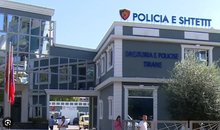
"Fraud" with the forgiveness of State Police fines!
2025-06-04 21:15:22

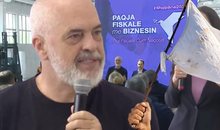

"The real reason why young Albanians like me are coming to the UK illegally"
2025-06-04 20:07:39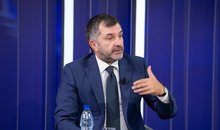
Government opens a legal path for investments in Army properties
2025-06-04 19:49:25
Elderly woman forgets stove on, house burns down in Vlora
2025-06-04 19:46:42

Ersekë/ Elderly man struck by lightning, dies on the spot
2025-06-04 19:12:55
Trump calls Putin, warns Ukraine that Russia will respond to attack on airbases
2025-06-04 19:05:56
Zelensky's Chief of Staff Meets with Secretary Rubio in Washington
2025-06-04 18:53:37

Rama opens a legal "path" for investments in Army properties
2025-06-04 18:41:33
How to think like a Stoic
2025-06-04 18:19:02

May 11th Elections/Balliu: The European Parliament condemned the electoral farce
2025-06-04 18:05:14

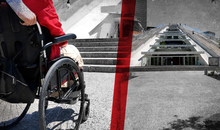
Tirana Pyramid “symbol of exclusion” for people with disabilities
2025-06-04 17:32:27
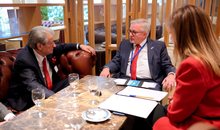


SPAK sends Evis Berberi, Belinda Balluku's right-hand man, for trial
2025-06-04 16:39:23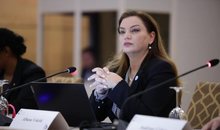
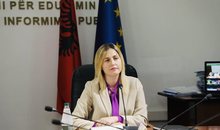
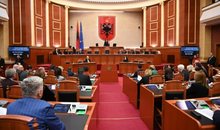
Reporting to the Parliament of independent institutions postponed indefinitely
2025-06-04 16:11:48
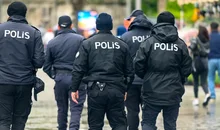
Turkish court jails five mayors of largest opposition party
2025-06-04 15:56:26


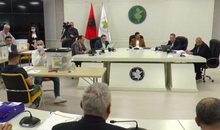
KAS vendos hapjen e 229 kutive të materialeve zgjedhore të Qarkut Vlorë
2025-06-04 15:04:47


Flax seeds, positive and negative effects of their consumption
2025-06-04 14:45:19
Housing costs are not increasing, apartment prices are
2025-06-04 14:39:07

A 51-year-old man was injured while working at the ferrochrome plant in Elbasan.
2025-06-04 14:14:12
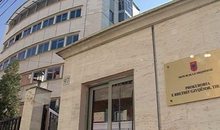



Italian university engulfed in flames, student evacuation begins quickly
2025-06-04 13:28:22
39-year-old woman disappears in Gjirokastra, husband: She didn't come home
2025-06-04 13:15:24
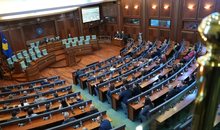
The saga of failures to constitute the Kosovo Assembly continues!
2025-06-04 12:56:25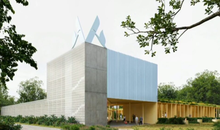
Government villas will be turned into luxury hotels
2025-06-04 12:51:21
Artan Tafani testifies for the first time against Laert Haxhiu's gang
2025-06-04 12:24:57

Scary figures: 8 in 10 Albanians believe the healthcare system is corrupt
2025-06-04 12:08:18
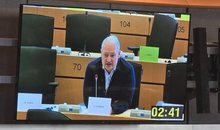

Constitutional Court reviews TikTok shutdown decision
2025-06-04 11:45:24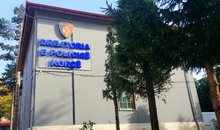
75-year-old man disappears in Korça! His wife: He has been gone for two days
2025-06-04 11:32:25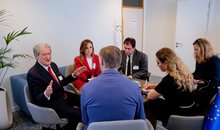





Iran rejects US demand for uranium enrichment
2025-06-04 10:15:32
Hoxha: An Albanian was caught distributing cocaine in the Russia-Ukraine war
2025-06-04 10:01:32
A safe was robbed, two people were arrested in Tirana
2025-06-04 09:54:36
Popular singer Jessie J diagnosed with breast cancer
2025-06-04 09:49:34
Young man arrested in Lazart for carrying gun and gun in apartment
2025-06-04 09:33:08
Call center fraud, two arrested in Tirana
2025-06-04 09:24:53
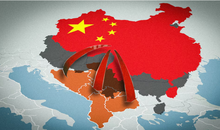
How is China exploiting the West's retreat to expand its presence in the region?
2025-06-04 09:07:32
Over a million pilgrims begin Hajj pilgrimage
2025-06-04 08:52:44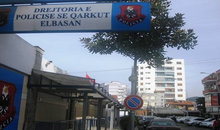
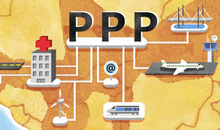
Banks ask the Bank of Albania to facilitate loans for PPPs in infrastructure
2025-06-04 08:29:07
Horoscope, what do the stars have in store for you today?
2025-06-04 08:16:36

Morning Post/ In 2 lines: What mattered yesterday in Albania
2025-06-04 07:47:17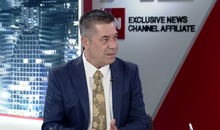
Analyst: Political acts have damaged Albania more than criminal gangs
2025-06-03 23:00:19


Baçi: Rama was afraid of popular discontent, stole more votes than he thought
2025-06-03 22:10:14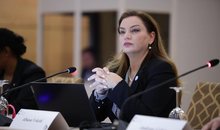


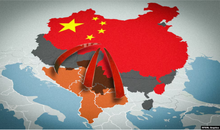
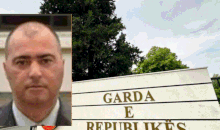
9 months after taking office, the Chief of the Guard, Ermal Onuzi, resigns
2025-06-03 20:14:09
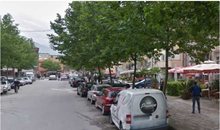
15-year-old injured by gunfire at 'Ali Demi' pizzeria, police arrest perpetrator
2025-06-03 19:32:04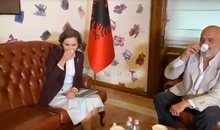

Why don't I want to spend a single day in Vlora?!
2025-06-03 18:26:21
Tech-stinction alert: Will humanity shrink to just 100 million people?
2025-06-03 18:02:23
EPP accepts Berisha's request: A fact-finding mission will be sent to Albania
2025-06-03 17:49:47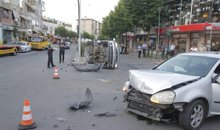
Three vehicles collide in Elbasan, several injured suspected
2025-06-03 17:45:02
Prosecutor Marsida Frashëri faces a request for dismissal at the KPA
2025-06-03 17:21:57
Nga Holanda në Finlandë, si operonte rrjeti shqiptar i drogës
2025-06-03 17:10:34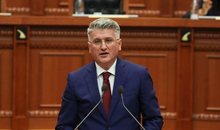

Tusk kërkon votëbesim në parlamentin polak më 11 qershor
2025-06-03 16:59:01

